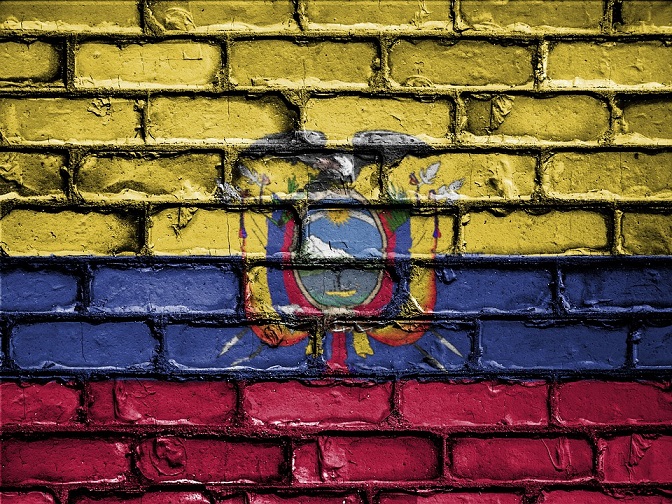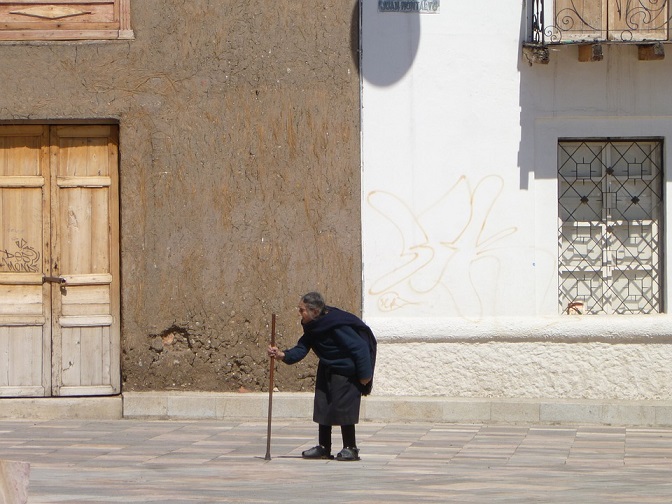While he crossed the Heart of the city in his boat over the river Thames, the President of Ecuador, Rafael Correa, had completed what was the first visit made by the aforementioned leader to the United Kingdom. The Prisma’s Memoirs. January 2011.

Helen Yaffe*
It happened at the end of October amid academic a tight packed schedule which included conferences in universities and other academic establishments, a meeting with members of the British parliament and a vibrant gathering with the Ecuadorian immigrant community, totalling some tens of thousands in London.
On this trip he was accompanied by journalist Helen Yaffe, who he exclusively conversed with over critical points which concern the politics of the socialist revolution led by Correa in his country.
In his interview Correa’s confirmed why he is a controversial leader; he conceives a different and fair world through real, democratic, social, economical, collective and fundamentally socialist solutions.
What is different about ALBA to the previous attempts made by the countries of Latin America in order to develop mutually beneficial trade and investment strategies?
In everything, because it’s a supportive integration between brothers, not competitors. This has been the big mistake. The integration that we have searched for – above all in the last years – has been directed at trade, at having bigger markets which compete against one another. In ALBA rivalry is not discussed, instead it is coordinated actions of energetic, financial and also defensive integration.
Up to what point has socialist Cuba been an inspiration for el ALBA?
The ALBA is to a large extent inspired by the good things that the Cuban model has, such as solidarity, the trade between towns with no profit in mind, cooperation in development… A big example of this is the fact that a Cuba knows how to share in poverty.

In the announcement of the land distribution plan, the Ecuadorian Minister of Agriculture said that he does not consider the land to be “merchandise but rather a social function”.
There are things that are not goods (the land, the water) and must be controlled by the state, and must have to undergo checks for their exchange. We are going to make a law where the state has to authorize the purchase and selling of land in order to avoid what has happened, for example in the past rural people have been deceived in such a way that they are left without land. But the land will be theirs, of the commune not of the state, instead it will be under the State’s control, accumulation of land is avoided.
We are also going to distribute the land of the state, some 130,000 hectares, and we are making an inventory of all the unproductive, privately owned land in order to share this land out as well. Equalling some million and a half hectares.
What are your government’s plans to prepare workers to a higher level and, at the same time, forge your political commitment for the social development and the Civic Revolution in Ecuador?
Technology cannot be the patrimony/wealth of capitalism alone. There is no such thing as capitalist technology, there is just technology. One has to make the most of the human resources which shape capitalism, like they have done in Cuba, the Soviet Union and China, etc. For the development of our countries we need to put emphasis on technology and this is connected to human resources. This is not just about having just technology, but human resources capable of using and managing it. In this sense we are making strong reforms in education which has generated resistance in groups who have always appropriated education.
State education and higher education in Ecuador is very bad. We have issued a new law that, amongst others things, obliges investigations to be carried out within universities. We have strong programs to improve the education system, the new law of higher education, scholarship programs so that people can go and train in other countries and clear scientific and technological policies, even if there are few resources, but much more than in previous years.
And the revolutionary conscience?
Revolutionary conscience and commitment depend on various factors. Part of this education is social commitment without being biased. However it also depends a lot on the leaders. When they see, as they are seeing, the enthusiasm, the real desire for change in the country, they support one another with this desire for change and the future professionals will have this revolutionary conscience. Now this dynamic, which the Ecuadorian society is living and with the opportunities that we are creating, we think that those new professionals that study in the outside world will have this revolutionary conscience. But we have to work much more directly with this. We are now preparing, although revolutionary conscience is more difficult to achieve. We have political training schools, but this depends on the Country Movement still, a lot more is needed in order to strengthen.
What happened with the Sucre?
Everything is ready. We are going to create electronic currency. It is a compensatory system. We will start pilot operations.

Is the goal of Sucre to replace the dollar for a national currency in Ecuador?
No. It’s about minimising the need for dollars. Unfortunately we have adopted the dollar as a national currency. It is very difficult to escape dollarization; we could create a social disaster.
How are the ALBA countries able to defend themselves from situations like the coup d’état in Honduras?
The isn’t an unbeatable defence but for example, Telesur is a great help. One has to have the ability for accessing information, strong relations between countries to support ourselves mutually.
But nothing guarantees that this will not happen in Ecuador, Venezuela or Bolivia. For this reason we have to be very careful in being organised. Our government has great popular support, but it is not organised to defend our process before any destabilisation attempt.
You talk about Socialism of the 21st Century in Ecuador…
Socialism of the 21st Century is a process of reconstruction, trying to take the best of traditional socialism, and other socialisms, like Andean socialism, agrarian socialism, and- although less in the Ecuadorian case- the social doctrine of the Church, Liberation Theology. We are a Christian continent. A much better and legitimate strategy is to direct this religion at what can also be revolutionary. This is what Liberation Theology did. Basically, the message was; we have had enough of the theology that tells us to put up with all the exploitation in life because after the deaths we will have the kingdom of heaven. No, one has to make the kingdom of heaven here, it is the kingdom of justice, and one has to fight against injustice.
How does it differ from traditional socialism?
Socialism of the 21st Century has to reject some unviable and undesirable elements of the previous socialism, for example, class struggle and violent change. We found change through democratic processes and the vote, and not through armed struggle. There are aspects of traditional socialism which we share: the importance of human labour over capital, the need for collective action, the need for planning, the role of the State in the economy, the search for economic justice in all it’s dimensions; social, gender, ethics, international.
But not unviable and undesirable things- class struggle, dialectic materialism. Every attempt to explain such complex processes like the progress of human society with simple laws will be a failure. Also it is simplistic to say that the driving force in the progress of society is individualism, taking away culture, community, or technology. A technological revolution can create a lot more social changes in revolutions of production than the supposed dialectic materialism.
Having in mind what happened in Honduras, or before in Venezuela, you still don’t believe that class struggle is important?
I am very much in agreement – the great challenge in our countries is to change the relation of forces and move from a State captured by certain interests to a State that represents popular power. It is the first step for Latin America. But to think that all of this comes just from this change in relation of forces is an error. There are a lot of other important things: technological base, cultural changes… It is not true the masses and the proletariat are always right. You can convert from a bourgeois state to a popular State, but this does not mean that you are going to make correct decisions.

In Latin America there must be great cultural changes. This is true of the indigenous, who are sometimes mythologised; but the greatest inter-family violence is in the indigenous world. It is not just about transforming structures. It is about transforming family, people, culture, technology.
We do not accept, nor reject, dialectical materialism as a driving force of society. This led to class struggle, violent change. Perhaps the greatest error traditional socialism committed was not having presented an alternative to the notion of development with regards to capitalism.
*Helen Yaffe: Author of ‘Che Guevara: The Economics of Revolution’, (London, Palgrave Macmillan, 2009), member of Rock Around the Blockade (www.ratb.org.uk), office@ratb.org
(Photos: Pixabay)












.jpg)












